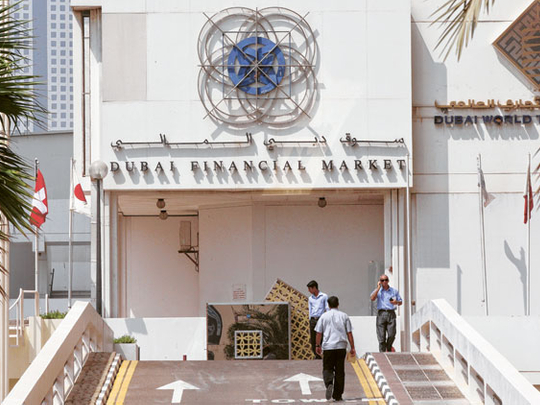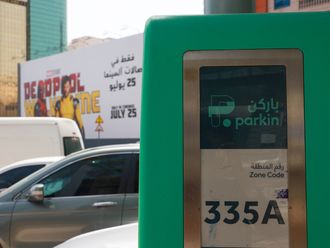
Dubai: Stock exchanges in the UAE may not feel the benefits of a potential upgrade to emerging market status due to low liquidity levels and problems in the Eurozone, analysts told Gulf News.
The UAE will find out in the early hours of Thursday if its upgrade application has been successful when index compiler Morgan Stanley Capital International (MSCI) announces the results of its latest classification review, having postponed its original decision in June.
Most analysts and investors agree an upgrade would have a significant impact in the long run as the country's three exchanges — the Dubai Financial Market, the Abu Dhabi Securities Exchange and Nasdaq Dubai — would be on additional radar screens for global investors.
However, low trading volumes and macro-econ-omic issues are set to overshadow any short-term benefits.
"I would say the UAE's chances of an upgrade are 50/50 at best because our position in June was a lot better than it is now in terms of market performance," said Mohammad Ali Yasin, chief investment officer at CAPM Investment.
‘Overshadowed'
"I would not be surprised if MSCI looks at the UAE's markets and decides to postpone its decision for another six months because of the low volumes we are seeing.
"Even if the UAE is upgraded, in the short term the move will be overshadowed by a lack of liquidity so the markets will not be able to fully benefit from the decision," he added.
Ali Yasin says an upgrade would be a step in the right direction but not enough on its own to significantly boost liquidity in local markets. "We need government related entities to come in and support our markets because confidence levels are low and we cannot rely on foreign inflows," he said.
In June, MSCI extended the review period until December to give additional time for market participants to "assess the impact of the recent positive changes implemented" in the UAE and Qatar, which has also applied for an upgrade.
Last week, a draft companies law was issued that allows the UAE Cabinet to issue a resolution that could allow foreigners to hold more than 49 per cent of a company's capital in certain sectors.
However, volumes on local markets are down 90 per cent from their 2007 peak and European debt problems are also impacting on sentiment in the Gulf.
"The situation in Europe is tricky and the benefits of an MSCI upgrade will depend on how markets react to the EU summit. If it does not produce a positive reaction, the MSCI announcement will be overshadowed," said Joe Kawkabani, chief investment officer of equities at Franklin Templeton Investments.
Furthermore, if MSCI upgrades one or both of the UAE and Qatar, their size and weight on the emerging markets index will be very small. "An upgrade would put the UAE on the radar screens of a lot of people so investors would like to see it happen. Any upside will be a positive for local markets even if the impact will not be as big as expected," he added.
See also Page 41












